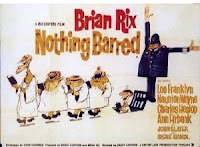Liberal Democrat Voice published an article the other day saying the Liberal Democrats should not have supported the sugar tax on soft drinks.
Written by Jack Watson, it was based on a briefing from the Taxpayers' Alliance. Its chief arguments were that the tax would hit the poor (note the tension between "everyday" and "occasionally":
There was a useful report on the likely effects of a sugar tax published last year by the Behavioural Insights Team. It suggests that the effects will be wider and more varied that Jack Watson allows.
Among those effects are:
The New York Times reports that Philadelphia is poised to become the first large American city to pass such a tax:
Written by Jack Watson, it was based on a briefing from the Taxpayers' Alliance. Its chief arguments were that the tax would hit the poor (note the tension between "everyday" and "occasionally":
The TPA also suggested the sugar tax would “push up the cost of everyday products for hard-pressed families”. Many low-income households consume soft drinks occasionally as part of a balanced diet. Is it fair to put the cost of tackling obesity on those households?And that:
As liberals we believe in the freedom to choose independent of government coercion.One instinctively nods in agreement with the latter statement, but the truth is that Britain has had consumer protection legislation since the mid 19th century and we liberals have consistently promoted and supported it.
There was a useful report on the likely effects of a sugar tax published last year by the Behavioural Insights Team. It suggests that the effects will be wider and more varied that Jack Watson allows.
Among those effects are:
We often think about behavioural change in terms of how we influence individual behaviour. But there is growing recognition that the some of the biggest health benefits can be achieved through product reformulation by producers. For example, the gradual reductions of salt in processed foods, which have drastically cut salt consumption without consumers having to change their purchasing decisions.
Because it is already possible to replace sugar with low-calorie sweeteners, producers are likely to respond by reformulating their existing products. And we think that this will be where we are likely to see the biggest health impacts.And:
The effect of price changes will likely be stronger if retailers make these changes more salient at the point of purchase. Research has shown that consumers underreact to taxes that are not salient. In one study by Raj Chetty in the US, posting tax-inclusive prices reduced demand by 8%, even though the same price was paid whether the tax was highlighted or not. In other words, if cans of cola are clearly marked as being higher in price because of the levy, this may lead to a greater effect on behaviour.And:
The final, and in some ways most elusive and interesting, effect of the sugar tax will be the signalling effects that the levy creates – namely that highly sugared drinks can be bad for your health, and that there are alternatives available. If this wider attitudinal change starts to change purchasing behaviours, we will be on the path towards reducing obesity in the UK.Or it may simply be that the sugar tax is an effective and popular way of raising revenue.
The New York Times reports that Philadelphia is poised to become the first large American city to pass such a tax:
Mayor Jim Kenney’s original proposal was to tax sugary drinks at 3 cents an ounce, a rate that would have doubled the price of many sodas. Aware of the political challenges, he tried a novel strategy to promote his tax.
Instead of selling it as a nanny state measure meant to make the city healthier, he presented it as a big untapped source of revenue that could be used to pay for popular initiatives, including expanded prekindergarten, and renovations of city libraries and recreation centers.The arguments for and likely effects of a sugar tax are more varied and interesting than the Taxpayers' Alliance allows.





























